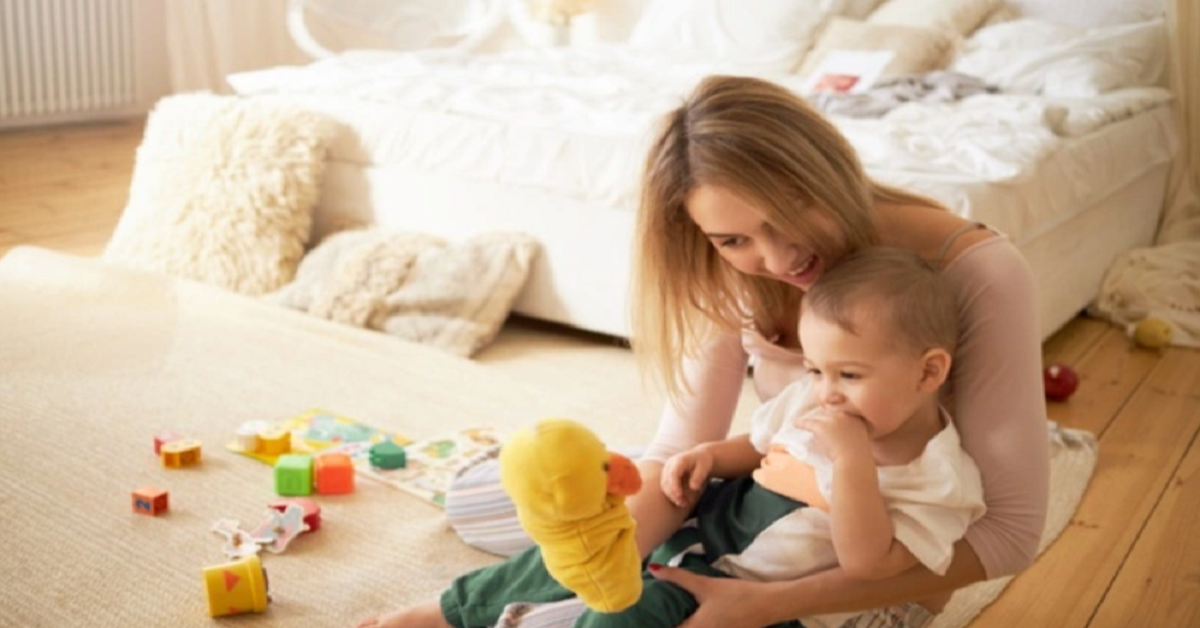10 Things to Expect When You Have a New 11 Week Old Baby
The first few weeks with a new 11 week old baby can be tough. It’s always a good idea to remember that it will get better, and everyone goes through this! This article will go over some things you should expect when you have an 11 week old newborn in your life.
Senses and Communication skills
At 11 weeks old, your baby can see color. The infant will start to recognize their parents and familiar faces around them. They’ll also be able to track moving objects better with both eyes simultaneously now that they are getting more coordinated in their movements. Communication skills for babies are rapidly developing, and their nervous system is building the foundations of language. They’ll respond positively when you talk or sing with them, which will help their brain learn how to process words and sounds they hear daily.
Food and feeding activities
As you can see from the signs, your baby is ready to start eating some solid foods. As a first food, it’s best to give him rice cereal mixed with breast milk or formula, as this will be easy for his digestive system and taste familiar. Start by mixing a teaspoon of dry cereal into two tablespoons of cold water, then heat up in a saucepan. Once the mixture is thickened, serve it to your baby in a small bowl and feed him with a spoon (he won’t be able to hold his head up yet).
After he has tried cereal, you can feed him fruits such as apples or pears cooked until soft or vegetables like carrots that have been boiled and mashed.
Games and activities
Music is a beautiful way to interact with your baby because it allows you both an avenue for communication that doesn’t require words or gestures. Plus, dancing together can be incredibly fun.
If you don’t know any songs yet, check out YouTube videos of lullabies from different cultures worldwide — they have all sorts of rhythms and variations!
Feeding time becomes more enjoyable when you add toys to his highchair tray, so he has something else besides food to look at while eating. You’ll also want a toy handy in case he finds solace in sucking on his fingers again at mealtime instead of drinking.
Sleeping activities Sleeping
They are sleeping, waking up to feed, and going back to sleep. Baby is very busy with all the day-and-night activities! So taking care of a newborn can be pretty exhausting for new parents. But it’s so crucial that you get some rest when both your mind and body need it. While there are no “rules” about how much time should pass between feeds or naps, here is what we generally observe at this age: – Newborns usually go through three different periods of sleep before they wake up again in the morning (the latter two being shorter). During these periods, babies transition from light dozing into a deep sleep quickly and easily without any help from us, which means they can be easily woken up, and it’s the best time to feed them. – Newborns usually sleep between 14 and 16 hours a day, divided into three naps. The first nap often starts at about an hour after birth (if you had a c-section, this might take slightly longer) and last for around two hours. Then there is another short one that lasts 30 minutes or so, followed by a third nap which lasts from 45 minutes to over an hour depending on how long the baby was awake before going down for their next nap.
11 Week Old Milestones
11 week old baby milestones include holding up their head, moving from a stomach to a back-lying or side-lying position, and bringing hands together. They can also roll in both directions on their backs, but usually only once in each order before returning to an earlier starting point. 11 week olds may enjoy tummy time – lying face down with their arms free for playtime while you hold the rest of your body off the floor! When parents place pillows under them, it helps make this more comfortable. Baby will soon be crawling all over, too, so try not to leave any loose objects out that might attract his attention as he gets mobile very quickly now!
Development of an 11 week old baby
At 11 weeks of age, babies tend to be more alert and spend most of their time awake. They also enjoy spending time in a baby swing or bouncer that vibrates while they are lying down. While some babies do not like to sleep at this age, they need to start sleeping longer stretches during the night, improving their development. Babies typically begin eating solids around six months old, but there isn’t evidence on when exactly they should eat solid food; however, if your baby seems hungry after feeding them formula then you might want to try giving them cereal since many doctors recommend starting with rice cereal first because it has iron in it compared to other care.
Behavior and tone of 11 week old baby
There are still a lot of developments that the baby goes through during this stage. Your baby might start to cry more often and fussier than before, but do not worry. They will stop after some time. it is also the start of separation anxiety when you leave for work or go out with friends. They may love it in one moment and then, later on, start crying when you try to put them down in their crib or anywhere else where they can be alone for short periods. During this period, your 11 week old’s skin starts getting thicker due to hair growth, nails become more robust, and babies recognize voices better as well as smells by now too! Also, babies learn how to smile (which makes everyone happy) and even laugh when tickled.
Tests and vaccinations
Tests and vaccinations of 11 week old baby show that the child has a healthy heart, lungs, and kidneys. The doctor also checks to see if they have any liver problems or intestine troubles. They recommend an appointment with your paediatrician for more tests as soon as possible after birth and before you take them home from the hospital. A blood test will check on their erythrocytes (red blood cells), hematocrit (amount of red blood cells about volume), and haemoglobin levels (iron). There is also an examination done by ophthalmoscopy examining eyes for congenital cataracts.
Baby’s vaccinations are also recommended to protect them from diseases that can be very dangerous for children. Vaccinations will help the body develop antibodies that protect your baby against different types of infections caused by bacteria and viruses, particularly diphtheria, tetanus (lockjaw), whooping cough (pertussis) and Haemophilus influenzae type b disease or Hib meningitis. The first vaccine is usually an injection in their thigh muscle called DTaP/Tdap vaccine, which protects babies against diphtheria; tetanus (also known as lockjaw), and pertussis (also known as lockjaw whooping cough). This booster helps protect them until they reach preschool age.
11 week old baby care tips
Feed the baby with formula or breast milk. Do not introduce cow’s milk into your 11 week old baby diet, as it can cause food allergies. – Offer solid foods that are easy to chew and swallow, such as mashed vegetables or fruit, yoghurt, tofu, eggs cooked soft boiled, hard-boiled. If you choose cereal for your first meal, give them oatmeal mixed with pureed fruits like pears, bananas, apples, peaches, apricots, mangoes pineapple.
Blooming Social Skills
Growing up is hard work – especially when you are an 11 week old baby.
You have to learn how to crawl, walk, feed yourself and speak. And it’s not easy either.
Luckily for your parents, they can help! We’ve teamed up with Nurofen For Children, who say that nine out of ten babies experience some form of pain within the first year, so having a range of suitable products on hand can be helpful.”
“The Nurofen range of products and tools to help your baby’s pain include:
– Baby Powder – Gentle on the skin, this powder contains a safe numbing agent which cools the surface area for instant relief from nappy rash. It can also be used as an alternative to talcum powder when dressing babies after bathing or showering, as it will leave their skin feeling smooth and dry.
Fast-acting formula sprays directly onto sore areas such as teething gums, cheeks, and lips, providing soothing relief within seconds so you can continue with other activities without having to worry about your little one constantly crying.



